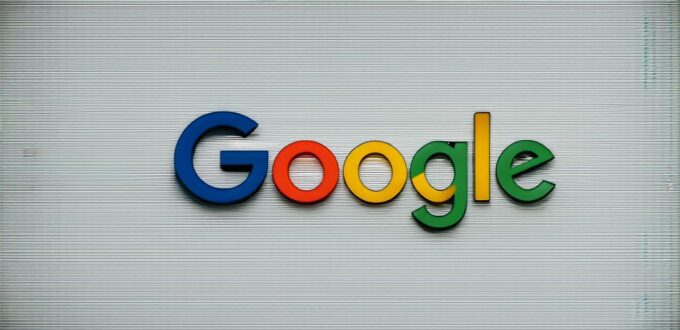In today’s digital age, technology is rapidly evolving and changing our daily lives. One of the most popular and widely used tools in this digital landscape is undoubtedly Google. It has become a ubiquitous presence in our lives, from searching for information to accessing email, social media, and even online shopping. But what exactly is Google? Is it considered a software or an application? In this article, we will explore this question in depth and analyze the implications for software developers.
What is Google?
Google is a search engine that was founded in 1998 by Larry Page and Sergey Brin. It provides users with relevant information on any topic by using an algorithm that ranks web pages based on their relevance, popularity, and other factors.
Is Google a Software or an Application?
The debate surrounding whether Google is considered a software or an application has been ongoing for years. Some argue that it is a software, while others claim that it is an application. Let’s explore both sides of the argument.
Software vs. Application: A Brief Overview
Software refers to a set of instructions that tell a computer what to do. It can be installed on a device or network and used by users to perform specific tasks. Examples of software include Microsoft Word, Photoshop, and anti-virus programs. On the other hand, an application is a program designed for a specific purpose and usually runs on a device or network. Examples of applications include web browsers, email clients, and social media platforms.
Google’s Software Components
Google’s search engine software consists of several components that work together to provide users with the most relevant information. These components include:
- Crawler: The crawler is a program that scans web pages and indexes them for Google’s search algorithm. It is responsible for collecting data about a web page, such as its content, meta tags, and other relevant information.
- Indexer: The indexer takes the data collected by the crawler and stores it in Google’s database. It organizes this data in a way that allows the search algorithm to quickly find and retrieve relevant information for a user’s query.
- Ranker: The ranker uses an algorithm to determine which web pages should be displayed at the top of the search results page. It takes into account factors such as the relevance, popularity, and other factors of each web page.
- User Interface: Google’s user interface is what users see when they perform a search. It includes the search results page, which displays relevant information in a list format, as well as other features such as ads, related searches, and more.
Google’s Application Components
While Google’s search engine software can be considered a software, its application components are designed for specific purposes and run on devices or networks. These components include:
- Chrome Browser: The Chrome browser is a web browser developed by Google. It is available for Windows, Mac, Linux, Android, and iOS devices.
- Gmail: Gmail is an email service provided by Google. It allows users to send and receive emails from any device with internet access.
- Google Drive: Google Drive is a cloud-based storage service that allows users to store and share files.

- Google Maps: Google Maps is a mapping and navigation service developed by Google. It provides users with real-time traffic information, directions, and other features.
- Google Images: Google Images is an image search engine that allows users to search for images on the internet.
The Implications of Software vs. Application for Software Developers
Software and applications are two distinct types of technology, and understanding their differences is crucial for software developers. Here are some implications of this distinction:
- Development Process: Developing a software requires a different development process than developing an application. Software development typically involves designing, coding, testing, and deploying the software on a device or network. On the other hand, application development involves designing, coding, testing, and deploying the application on a specific platform or device.
- Maintenance: Maintaining a software requires regular updates to fix bugs and improve performance. In contrast, maintaining an application requires regular updates to ensure compatibility with changing platforms and devices.
- Security: Software and applications have different security requirements. Software must be designed with security in mind from the beginning, while applications require additional security measures such as encryption and access control.
- Distribution: Distributing a software is typically done through software stores or direct downloads, while applications are distributed through app stores or other marketplaces.
Conclusion
In conclusion, Google can be considered both a software and an application. Its search engine software consists of several components that work together to provide users with the most relevant information, while its application components are designed for specific purposes and run on devices or networks. Understanding this distinction is crucial for software developers, as it has implications for development process, maintenance, security, and distribution. As technology continues to evolve and change our daily lives, it is important for software developers to stay informed and adapt their skills accordingly.
FAQs
What is the difference between software and an application?
Software refers to a set of instructions that tell a computer what to do, while an application is a program designed for a specific purpose and usually runs on a device or network.
Is Google a search engine or a web browser?
Google is both a search engine and a web browser. Its search engine component allows users to find information on the internet, while its web browser, Chrome, allows users to access the internet and use other applications.
What are the implications of software vs. application for end-users?
For end-users, the main implication is that they may need to install and update applications on their devices, while software can often be accessed through a web browser without installation. Additionally, applications may have specific compatibility requirements, while software is typically more universally compatible.
